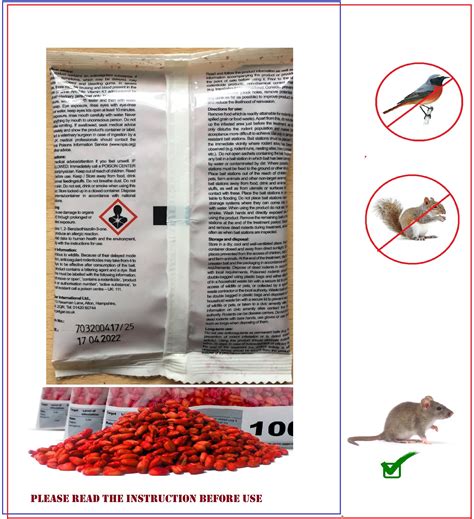The Ultimate Guide to Fast-Acting Rat Bait: Choosing the Right Poison and Ensuring Safety
Rodents in your home or business are a serious problem, posing health risks and causing significant damage. While humane methods like trapping are effective, sometimes a faster solution is needed. This guide explores fast-acting rat bait, focusing on responsible use and safety precautions. We'll delve into the different types, how they work, and crucial safety considerations to ensure both effectiveness and the well-being of your family and pets.
What Makes Rat Bait "Fast-Acting"?
The speed of a rat bait depends primarily on its active ingredient and the formulation. Fast-acting baits typically contain anticoagulants that work more rapidly than traditional "second-generation" anticoagulants. These newer anticoagulants cause internal bleeding more quickly, leading to a faster mortality rate. However, "fast-acting" is relative; it doesn't mean instant death. Expect to see results within a few days, rather than the week or more that slower-acting baits might take.
Types of Fast-Acting Rat Bait Ingredients:
Several active ingredients are found in fast-acting rat baits, each with its own mechanism and speed of action. It's crucial to read the label carefully to understand the specific active ingredient and follow all instructions precisely. Never attempt to mix different types of bait.
- Brodifacoum: This is a potent anticoagulant, known for its effectiveness even with a single feeding. It's crucial to use this with extreme caution due to its potency.
- Difenacoum: Similar to Brodifacoum in its effectiveness, Difenacoum is another strong anticoagulant used in fast-acting baits.
- Bromadiolone: A slightly less potent anticoagulant than Brodifacoum and Difenacoum, it still delivers relatively fast results.
Choosing the Right Fast-Acting Rat Bait: Factors to Consider
Selecting the appropriate rat bait involves several important factors beyond simply choosing a "fast-acting" option.
Type of Rodent:
While most rat baits are effective against both rats and mice, some formulations are specifically targeted toward one or the other. Check the product label to ensure it's suitable for the rodent you're dealing with.
Bait Type:
Fast-acting rat bait comes in various forms:
- Blocks: Durable and weather-resistant, ideal for outdoor use or areas with high moisture.
- Pellets: Smaller and easier to place in tight spaces.
- Pastes: Sticky and often preferred by rodents, but can be messier.
Location:
Where you're placing the bait affects your choice. Outdoor use necessitates weather-resistant blocks, while indoor placement offers more flexibility.
H2: How Fast Does Fast-Acting Rat Bait Work?
The speed of action varies depending on the active ingredient, the amount ingested, and the rat's metabolism. While marketed as "fast-acting," it usually takes a few days for a rodent to show significant symptoms and succumb to the poison. You'll likely see reduced rodent activity within a week, but complete eradication may take longer.
H2: Safety Precautions When Using Fast-Acting Rat Bait
Fast-acting rat bait is powerful and requires careful handling to minimize risks.
- Keep Out of Reach of Children and Pets: This is paramount. Store bait in secure, tamper-proof containers.
- Wear Gloves: Always wear gloves when handling bait to avoid accidental exposure.
- Proper Disposal: Follow the manufacturer's instructions for proper disposal of used bait and packaging.
- Identify Entry Points: Addressing how rodents are entering your property is essential for long-term control. Seal gaps and cracks to prevent future infestations.
- Seek Professional Help: If you're struggling to control a rodent infestation, or if you suspect exposure, consult a pest control professional.
H2: Are There Alternatives to Fast-Acting Rat Bait?
While fast-acting rat bait provides a quick solution, consider alternatives like trapping. Trapping offers a humane way to remove rodents without the use of poisons, especially if you have pets or children. In some cases, a combination of traps and bait might be the most effective strategy.
H2: Is Fast-Acting Rat Bait Safe for Pets and Children?
Absolutely not. Fast-acting rat bait is highly toxic and must be kept out of reach of children and pets. Accidental ingestion can be extremely dangerous, even fatal. If you suspect poisoning, seek immediate veterinary or medical attention.
Conclusion
Fast-acting rat bait can be an effective solution for a rodent infestation, but it must be used responsibly and safely. Careful selection, proper placement, and strict adherence to safety guidelines are crucial. Always prioritize the safety of your family and pets. If in doubt, consult a pest control professional for guidance and assistance. Remember, prevention is key; regular inspections and sealing entry points can significantly reduce the risk of future infestations.

